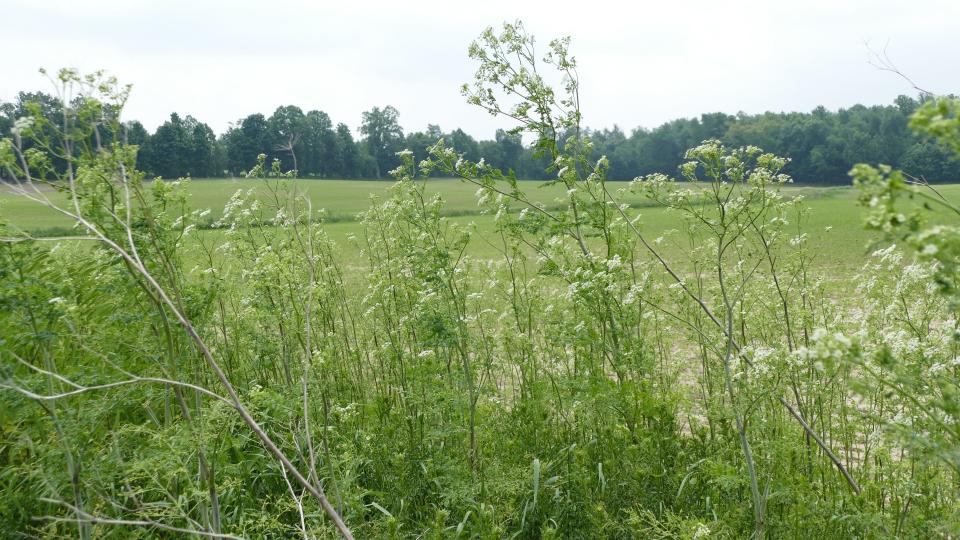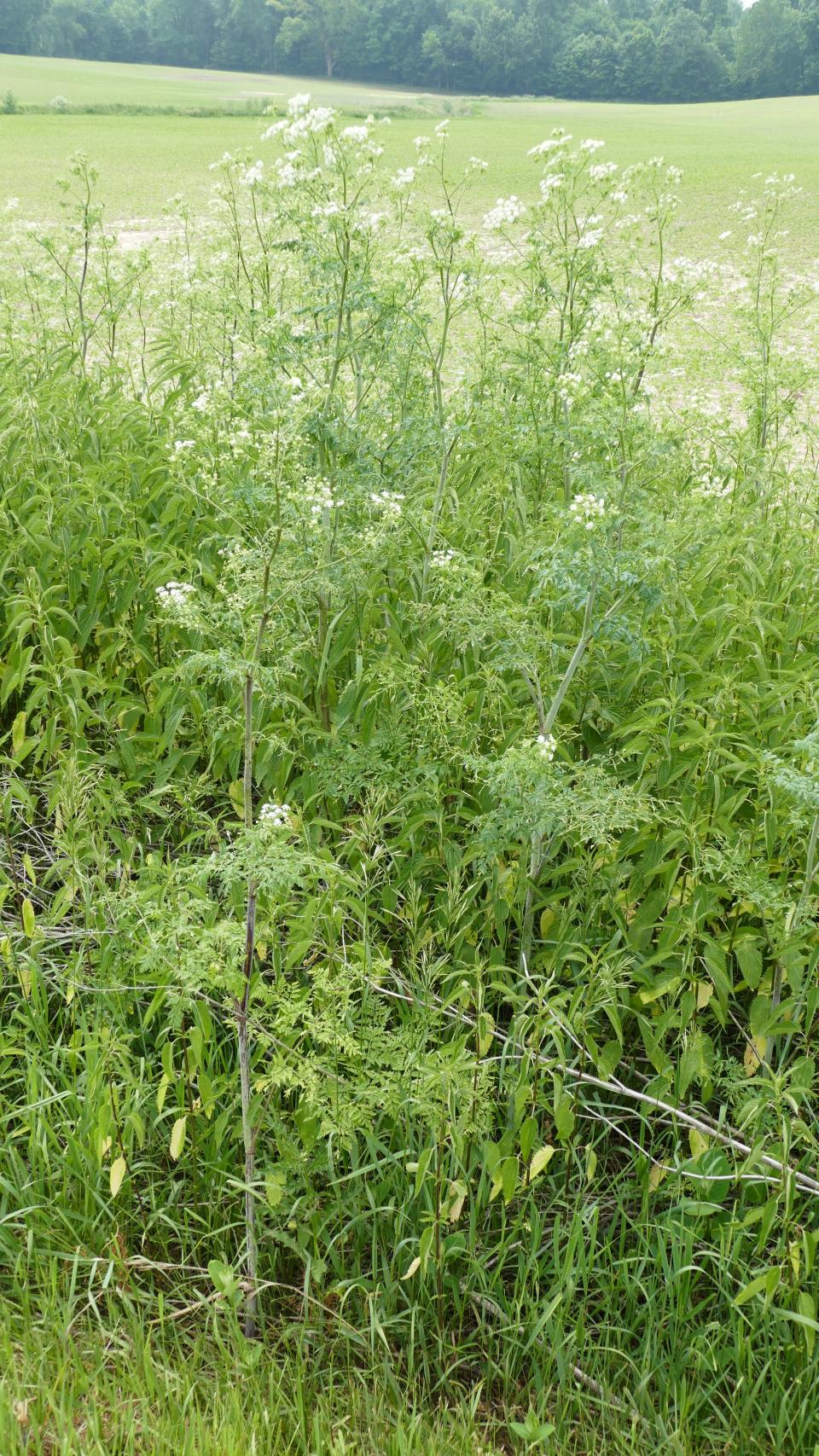Poison hemlock common in Michigan — and dangerous: What to know about symptoms, treatment
It's a dangerous weed found along roadsides, open fields and creek beds throughout Michigan. When ingested, it can be deadly.
Poison hemlock is part of the carrot family and is often mistaken for non-toxic, edible plants. With no one-size-fits-all treatment method, hemlock can cause serious health complications related to one's nervous, cardiovascular and respiratory systems.
Here's what to know:
What is poison hemlock?
Poison hemlock, an invasive and highly toxic plant, is known for clusters of white flowers and hollow stems with purple splotches, according to Michigan State University. They can range in size from 2 to 10 feet tall.

It's often mistaken for wild carrot, wild parsnip or wild parsley, according to the Cleveland Clinic. Poison hemlock is typically found in Lower Peninsula counties but has been found in the Upper Peninsula as well. The seeds, flowers, leaves and roots of the plant contain toxic alkaloids that can lead to respiratory failure and death.
Poison hemlock can often be fatal, and was used in ancient Greece to execute criminals and prisoners. A famous example is the death of Socrates.
The species, which looks similar to Queen Anne's Lace, an edible and non-toxic plant, was first brought to the United States by European settlers in the 1800s, to be used as a garden plant. It can be found in various regions in the U.S. along low-lying areas such as roadsides, ditches and meadows.
CDC: Toxic blue-green algae is infecting humans, animals in Michigan summers
What are the symptoms of hemlock poisoning?
Hemlock poisoning occurs after an individual inhales any part of the plant, including the seeds, flowers and leaves. Common symptoms include trembling, sweating, vomiting, increased salivation, dilated pupils, muscle pain and weakness, dry mouth, high blood pressure and a rapid heartbeat. Symptoms typically begin as soon as 15 minutes or as long as hours after inhaling the plant. It also varies in severity depending on how much of the plant is inhaled and how poisonous it is at the time, according to Healthline.
Poison hemlock typically isn't poisonous to the touch, like species such as poison ivy and poison oak. However, according to Cleveland Clinic, there are rare instances where it's possible. For example, those with sensitive skin may develop dermatitis after touching or interacting with the plant. Additionally, it's possible for poison hemlock to enter one's bloodstream through a cut, or one's nose and eyes.
Hemlock poisoning can also cause delayed complications including slow heartbeat, low blood pressure, muscle paralysis, muscle breakdown, muscle death, kidney failure and central nervous system depression.

What are the best prevention methods?
The best way to prevent hemlock poisoning is to remove the entirety of the plant. Experts recommend wearing a face mask, gloves and other protective clothing when interacting with the species. It is best to dig the plant up from the ground and make sure the root is removed to avoid resprouting.
Herbicides may also work to remove hemlock but are ineffective after the plant sprouts flowers. It’s recommended to spray them in late fall or early spring, as this is right before they tend to grow.
What is the current treatment for hemlock poisoning?
Currently, there is no one-size-fits-all treatment for hemlock poisoning, and it varies depending on the patient’s severity and symptoms. For those experiencing symptoms, it's important to call 911 or a primary health provider, or go to the nearest emergency room.
For those experiencing shortness of breath, a doctor may look to other methods to secure one’s breathing, including a ventilator if needed. Fluids are also common to prevent dehydration and restore nutrition levels.
Furthermore, antiseizure medication is commonly used to control seizures, hemodialysis helps with renal failure, and a digestive system cleanse helps to eliminate the toxin.
This article originally appeared on Detroit Free Press: Poison hemlock, common in Michigan, is dangerous: Symptoms, treatment

